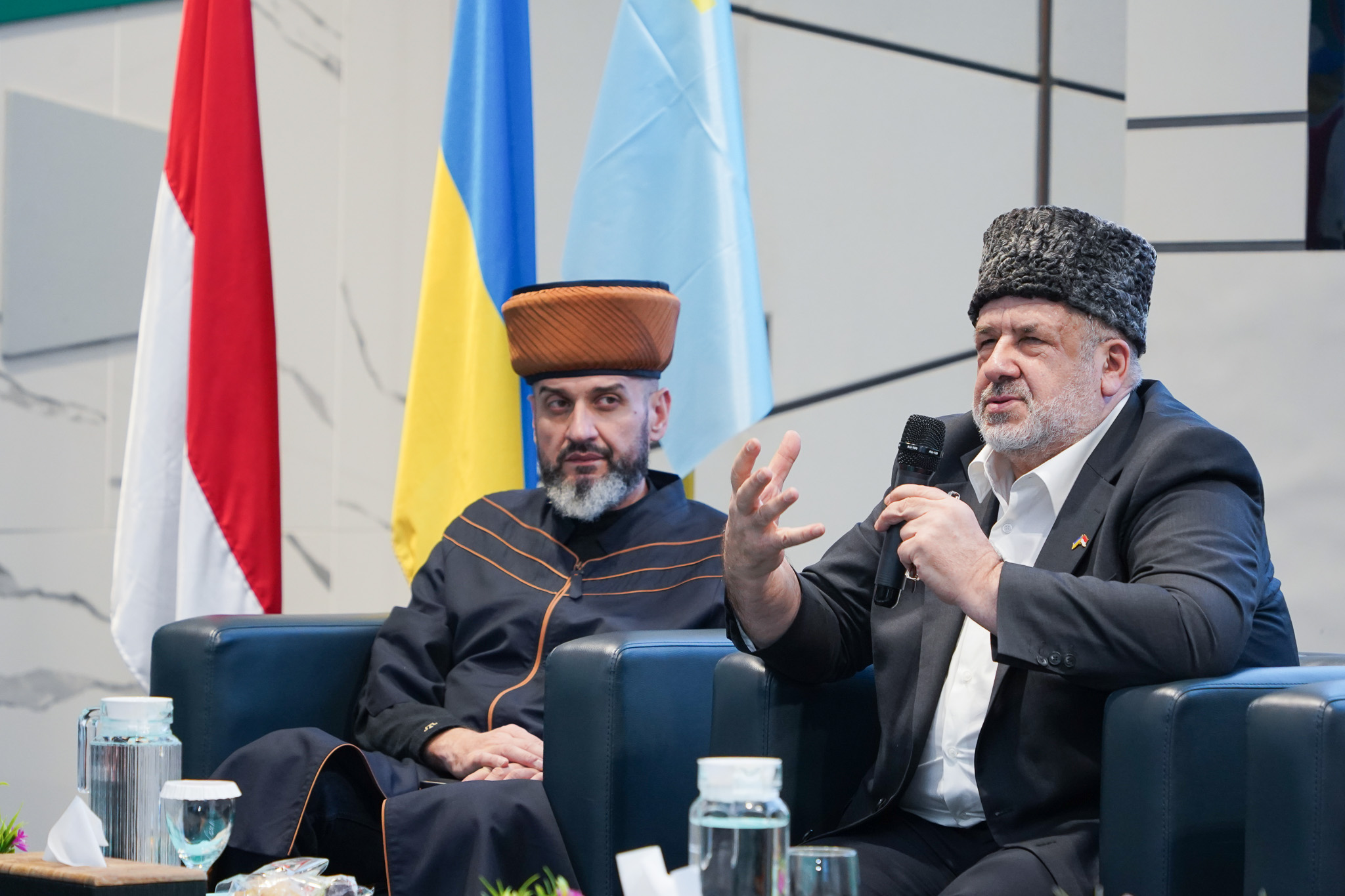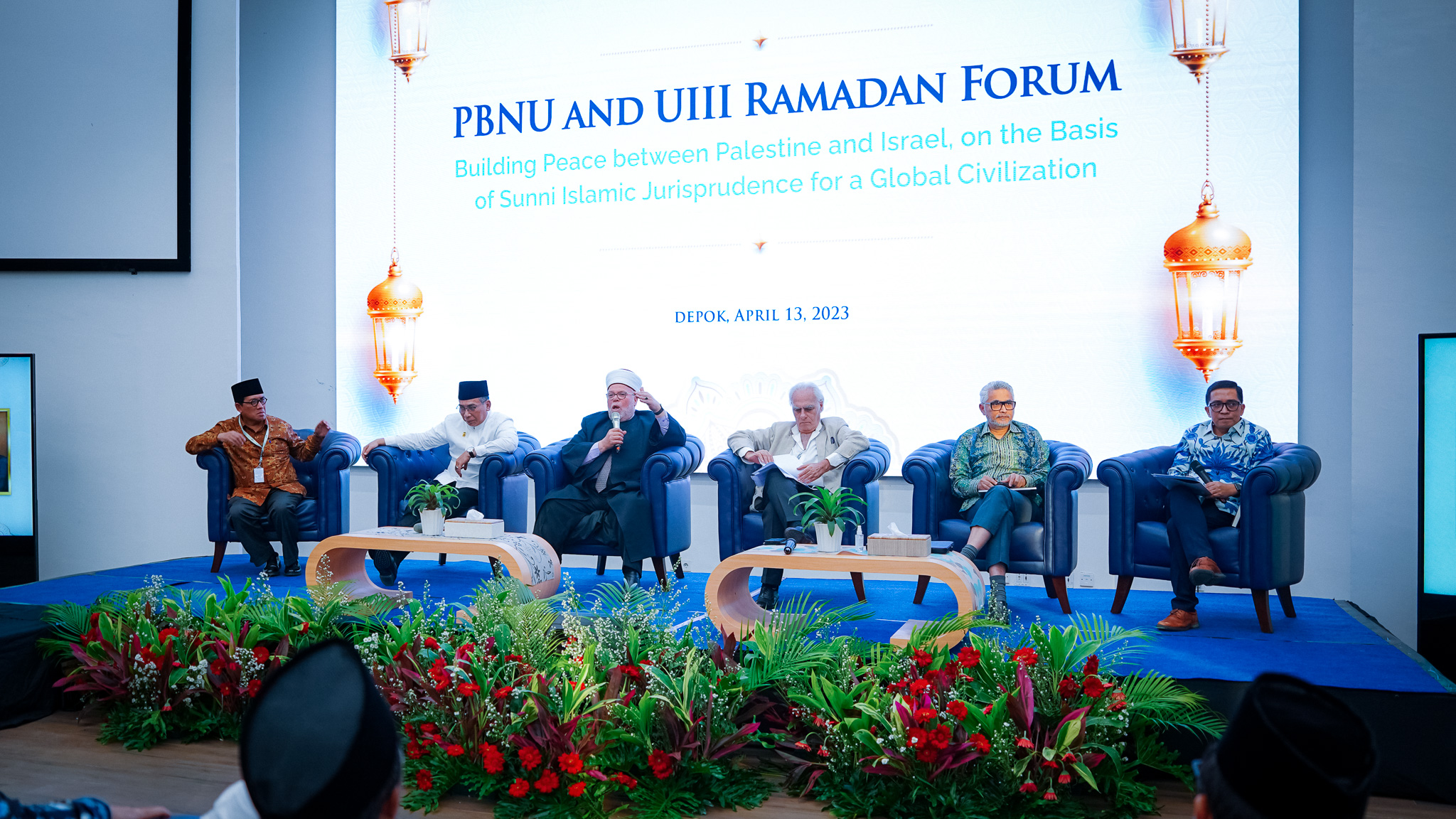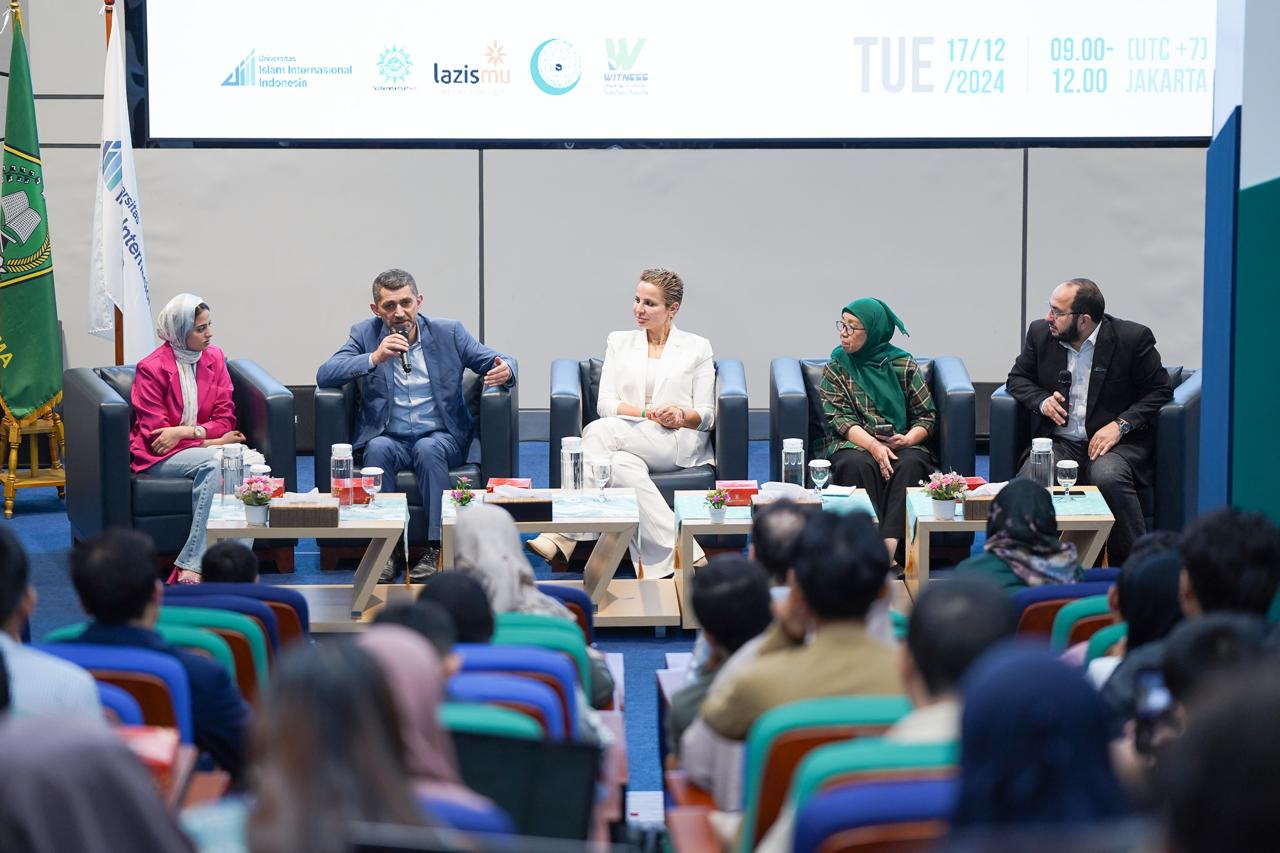Islamic and International Law in Modern Conflict: UIII FAITHS Event
April 14, 2023Contributor: Kante Hamed | Editor: Supriyono

The Faculty of Islamic Studies at the Universitas Islam Internasional Indonesia (UIII) organized a discussion on Wednesday, April 12, 2023, themed “Islamic Jus in Bello and the Challenge of the Modern Conflict” as part of its monthly event of FAITHS—stands for ‘Faculty of Islamic Studies Talk and Hangout Series’.
Spoke at the event were Dr. Zezen Zaenal Muttaqin, head of the MA in Islamic Studies program at UIII, and Dr. Fajri Matahati Muhammadin, a lecturer from Gadjah Mada University. The event was moderated by Fahmi Ali Hudaefi, an Associate Research Fellow at UIII’s Faculty of Islamic Studies.
Dr. Muttaqin began his presentation by giving a brief overview of his dissertation, which explores the relationship between Islamic and international humanitarian law. In his opening remarks, he explained that the term jus in bello refers to “the legal framework that governs the use of force prior to its occurrence”.
In this regard, Dr. Muttaqin argued that the ban on the use of force by States and its exceptions, such as self-defense and authorization from the United Nations to use force, are tied to the concept of justifying violence. He believed that this body of law provides justifications for the transition from peaceful to armed means.
Dr. Muttaqin cited the war in Iraq and the ongoing conflict in Ukraine as examples of the use of force being justified through subjective interpretations of self-defense. He argued that most jurisprudence disagrees with such interpretations, as they are highly subjective.
“This approach [used] as justification of violence is flawed and can have severe consequences, as seen in the destruction of Iraq and Russia’s involvement in the Ukraine conflict,” he elaborated.
Thus, Dr. Muttaqin’s primary focus was to conduct a critical evaluation of comparison techniques between Islamic and international humanitarian law that were based on an “obsession with compatibility” or assimilation of Islamic law into international law.
Instead of adhering to this binary approach, Dr. Muttaqin proposed an alternative “complementary approach” that involves adopting new modes of thinking and reasoning. This approach includes the use of complementary comparative reasoning, conclusion logic, and Quran logic to bring a deeper understanding of the relationship between Islamic and international humanitarian law.
Meanwhile, Dr. Muhammadin of Gadjah Mada University provided an additional perspective to the discussion, focusing on the current global landscape and the importance of understanding the Islamic perspective on war. He expressed concern about the current discourse on Islam and war, which he believes oversimplifies and reduces the true essence of the religion.
Dr. Muhammadin argued that Islam is not merely a set of rules and regulations, but a holistic belief system with overarching principles that guide its teachings. In this case, Dr. Muhammadin expressed his disagreement with the idea that international law is a colonial construct that is too focused on European perspectives. He challenged this notion, arguing that it ignores the contributions of other regions and cultures to the development of international law.
During the event, attendees posted several questions and comments, including one from Angy Alzuhri, a PhD candidate at the Faculty of Islamic Studies. Alzuhri asked how to reconcile the generalist and particularist approaches to international law in light of Dr. Muttaqin’s proposal for a complementary approach.
The response was that classical Islamic law provides a model for balancing particular and general laws, but this is not reflected in current international law, which should strive to be more specific.
The FAITHS discussion this time has offered distinctive viewpoints that expand the comprehension of the correlation between Islam and international law. It was an exceptional occasion for academics, learners, and professionals to gain a perception of the contemporary dialogue on Islamic law and war and how it can be approached with more refined methods.
- Call for Papers 2025: FEB UIII Invites Researchers to Explore Muslim World Economy & Sustainability in OIC Countries
- Prof. Dr. Nasaruddin Umar: A Distinguished Profile in Religious Leadership
- Is Indonesia’s Middle Class Collapsing?
- Pedaling to Work, Dr. Lukman’s Message on ‘World Sustainable Transport Day’
- Welcoming the Pilgrim of Hope: Indonesian Muslim Leaders Embrace Pope Francis
- Sheikh Muhammad adh-Dhuwaini: A Recognized Authority in Sharia and Law
- Qurban and Grassroots Innovations Across Indonesia
- Indonesia's Green Qurban Movement
- UIII Productivity Ratio 2023
- Unsung Heroes in Global Trade: Celebrating International Customs Day 2024


